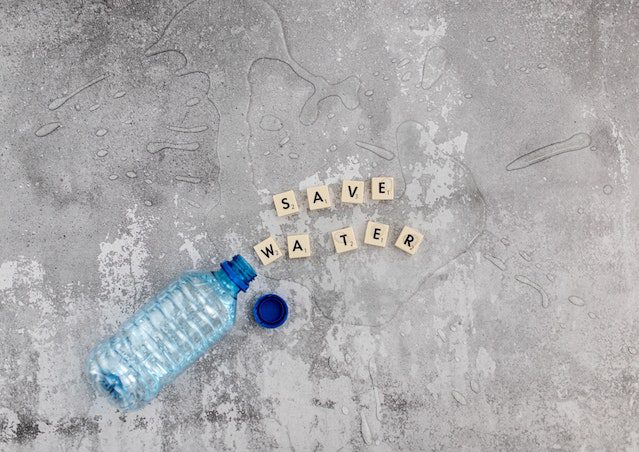If there is something that characterises today’s society, it is the genuine concern for certain issues that in the past were unknown or simply ignored. From fights for universal human rights to questioning social rules, in order to find justice and equality.
In addition to these issues, he highlights the need to create awareness of everything related to environmental protection, especially with regard to water. This is not free, nor is it a passing fad: caring for water is an urgent and essential matter.
The truth we can’t ignore
Thanks to technological advances and information systems, it has been easy for this generation to learn about the cruel reality: our lifestyle, consumption habits, and forms of production are negatively affecting the environment; and to continue without making any changes, the human race is doomed to suffer. It seems an exaggeration, but pollution, global warming and the indiscriminate use of resources have already begun to take their toll on us.
Past generations have created a system that guarantees progress by leaps and bounds, population growth and the development of industries; but all this also increased the demand for water. And although 70% of the planet is water, only 3% is freshwater, and of this amount, less than 1% is available for human consumption.
As a species, humans are used to climbing towards progress, but what we are questioning now is the cost of progress. If the essential resources for life, such as water, are affected, then it is impossible to speak of progress. The great challenge that is added to all this problem also faces an extra challenge: achieving equity in access to this resource.
Why is saving water so necessary?
The current reality in terms of drinking water is quite depressing: there is little water, and much of it is contaminated; In addition, a huge number of people in the world do not have adequate access to this resource.
According to figures from the World Bank, it is estimated that some 2.2 billion individuals around the world do not have safe access to water, some 4.2 billion do not have sanitation and water treatment services (which translates into contamination and diseases), and some 3 billion people do not even have a way to wash their hands. Those of us who are privileged to have the service are feeling the ravages of climate change since our service is being rationed.
We hear everywhere that water is life, but this does not only apply to human beings. Access to water is considered an indicator of the quality of life, since all human activities, on a small or large scale, depend on this liquid. Even the economic growth of a nation can be affected, since food production, and the health of the population and industries depend on the availability of water.
This generation has on its shoulders the difficult task of reconsidering the methods of consumption of goods, and the use and care of water, in addition to demanding that local authorities supervise and control the industries that operate in the locality to ensure that they use sustainable and ethical use of this resource.
While ordinary people have a major impact on CO2 emissions, water pollution and proper water use, industries are responsible for the vast majority of pollution and greenhouse gas emissions.
What we can do
Optimise the use of water: actions to take care of water
The modification of habits is essential to achieve the ethical and adequate use of this resource. It is well known that a good part of the country’s water is wasted in large cities, where a person consumes three times the normal standards.
In addition, the lack of maintenance in the home pipe networks causes up to 60% to be wasted. Closing the tap when the water is not being used directly, and repairing leaks and pipe breakdowns at home, among other small changes can make a difference.
Improve access and availability
Although it is not always possible to count on drinking water networks, it is possible to install rainwater harvesting systems and quality storage tanks, which allow access to clean, safe drinking water locally. Having water available for daily tasks represents a substantial improvement in the quality of life of an entire community, in addition to preventing serious illnesses and reducing infant mortality.
Install solutions for wastewater treatment
One of the big problems in the populations is related to the treatment of organic waste and sewage; because if they are discharged directly they will contaminate surface and underground water sources, in addition to contributing to the spread of diseases such as cholera, dysentery and other conditions that often take the lives of children and vulnerable people.
If there is no access to drainage treatment networks, it is urgent to install solutions such as biodigesters to treat sewage before returning it to nature. This type of system is natural, independent and efficient, as well as having an excellent cost-benefit ratio, which is why they are a real and efficient response to the sanitation problem.
Create awareness in the population
As per Aqua Drink, Changing habits: reducing the use of bottled water, and storing it properly, among other solutions, are possible only when people are capable of understanding the magnitude of the impact of their behaviour on the environment and water; and how this affects us in the present and future generations.
This is achieved by sharing information, making it accessible to people of all sociocultural extractions and spreading the message. We are on time and together we can make a real change.

As the editor of the blog, She curate insightful content that sparks curiosity and fosters learning. With a passion for storytelling and a keen eye for detail, she strive to bring diverse perspectives and engaging narratives to readers, ensuring every piece informs, inspires, and enriches.










